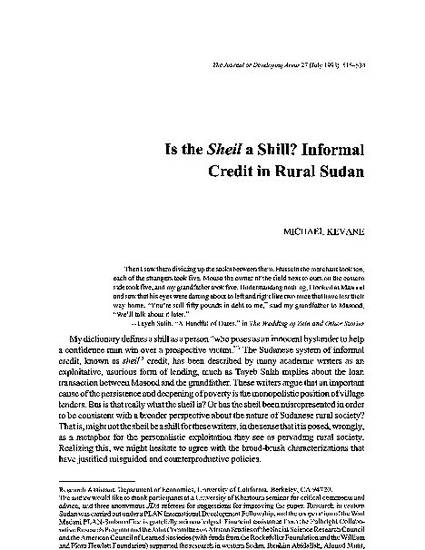
My dictionary defines a shill as a person "who poses as an innocent bystander to help a confidence man win over a prospective victim."1 The Sudanese system of informal credit, known as shei/ 2 credit, has been described by many academic writers as an exploitative, usurious form of lending, much as Tayeb Salih implies about the loan transaction between Masood and the grandfather. These writers argue that an important cause of the persistence and deepening of poverty is the monopolistic position of village lenders. But is that really what the sheil is? Or has the sheil been misrepresented in order to be consistent with a broader perspective about the nature of Sudanese rural society? That is, might not the sheil be a shill for these writers, in the sense that it is posed, wrongly, as a metaphor for the personalistic exploitation they see as pervading rural society. Realizing this, we might hesitate to agree with the broad-brush characterizations that have justified misguided and counterproductive policies.

Copyright © 1993 College of Business, Tennessee State University. Reprinted with permission.